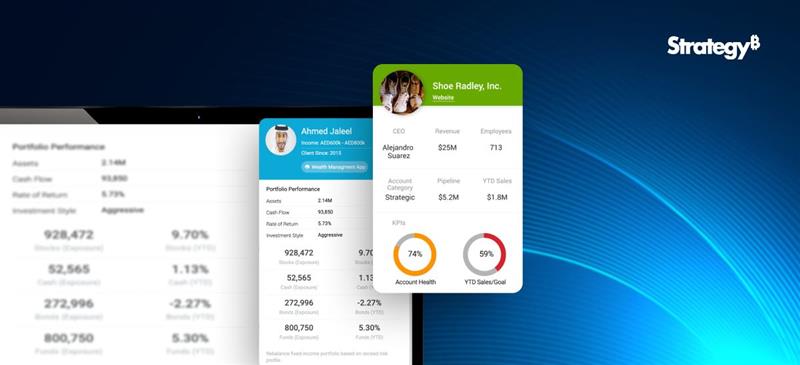5 Top Ways Blockchain Improves Cloud Computing
Blockchain technology can enhance cloud computing in several ways:
- Improved Security: Security and privacy are major concerns in cloud computing. Blockchain technology offers enhanced security by enabling data encryption and advanced database protection. The decentralised nature of blockchain ensures that data is not stored in a single location, reducing the risk of unauthorised access or data breaches.
- Increased Visibility: Transparency and visibility are crucial in cloud computing. Blockchain enables the creation of a decentralised and shared trust model, allowing for increased transparency. Public blockchains provide visibility into every action taken, reducing opacity and enhancing trust in the cloud environment.
- Data Integrity and Immutability: Once information is recorded on a blockchain, it becomes immutable and cannot be altered by any individual or entity without consensus from the network. This feature ensures the integrity of data stored in the cloud, reducing the risk of unauthorised modifications or tampering.
- Traceability: Blockchain ensures that data stored on its network remains intact and authentic. The information stored on one device within the blockchain network does not affect the data on other devices, guaranteeing data integrity. Additionally, blockchain enables easy data traceability, allowing users to track where, when, and how it is used.
- Exclusion of Third Parties: In cloud computing, relying on third-party providers can result in significant data loss if these providers experience failures. In contrast, blockchain is managed by code and does not involve third parties. This makes blockchain integration with cloud computing an attractive option, as it reduces the risk of data loss and dependency on external service providers.
4 Top Benefits of Blockchain in Cloud Computing
Integrating blockchain technology into cloud computing offers many benefits, including enhanced data security, seamless traceability, improved system interoperability, and more. Let’s explore how organisations can leverage the power of blockchain in their cloud computing strategies.
Enhanced Data Security
By implementing point-to-point encryption, blockchain ensures data security during transfer and storage. Using blockchain for transaction recording establishes a reliable method for maintaining the integrity and sequence of transactions. Furthermore, the decentralised nature of blockchain, combined with peer-to-peer distribution across cloud computing systems, adds an extra layer of security beyond traditional centralised storage approaches.
Permanent Audit Trail
An additional benefit of integrating blockchain technology into cloud computing is creating a permanent audit trail. Blockchains ensure the establishment of a lasting record of transactions. Notably, blockchain technology incorporates a feature known as proof of history (POH), which supports a verifiable delay function. This function timestamps the transactions within the cloud computing network without requiring user validation. By implementing blockchain, organisations can maintain a proper order of transactions and establish a permanent timeframe for transactional data by including the POH function.
Decentralisation
An emerging trend in the technology landscape involves the shift towards edge computing, where data processing occurs at the network’s periphery, near the data source. This decentralisation approach offers various advantages. For instance, Internet of Things (IoT) devices no longer need to rely on a centralised server for data processing. Instead, they can handle data independently. Similarly, facial recognition nodes may store encrypted data of authorised users and only require server interaction if a facial match is not detected. These nodes can operate autonomously until an upgrade check is necessary.
Efficient Disaster Recovery
By leveraging blockchain technology, the record of transactions is distributed widely, offering valuable benefits in terms of disaster recovery. The public or shared blockchain among authorised users ensures that a failure within one network node does not impact the remaining blockchain copies. Other nodes within the network continue to operate and update the blockchain even if one node experiences a crash.
With the transactional records embedded within the blockchain, especially those with specific timeframes, any failed network node can easily synchronise with the current state of the blockchain database once it is back online. This capability allows for a swift recovery and ensures that the node can quickly regain access to the most up-to-date version of the blockchain. Consequently, faster disaster recovery is facilitated through the inherent resilience and redundancy of blockchain technology.
Blockchain Technology: An Ultimate Solution to Business Problems
Blockchain technology offers solutions to various business problems across different industries. Let’s explore how blockchain can address challenges in specific sectors, starting with healthcare:
Healthcare
In the healthcare industry, sensitive information such as credit card data, patient records, and test results are often stored in centralised systems, which can be prone to data breaches and security risks. By adopting blockchain technology, healthcare establishments can mitigate the risk of data loss. Blockchain enables the creation of a decentralised and tamper-proof log for storing private data. This decentralised approach and unique secure codes enhance data security and privacy, reducing the likelihood of unauthorised access or data leakage.
Supply Chain
Supply chains rely on vast data to ensure smooth operations at each transportation stage. By implementing blockchain technology in logistics management, you can enhance revenue and mitigate security concerns through real-time visibility and control. Furthermore, blockchain solutions improve interoperability, transparent data sharing, and more accurate product tracking within the supply chain ecosystem.
Banking
The current process of international payments often involves numerous verification steps, resulting in a cumbersome procedure. However, blockchain can potentially expedite money transfers while ensuring robust transaction security. This is achieved using distributed ledgers, where payments are processed once the transaction is registered. By leveraging the blockchain in banking, transactions can be streamlined, reducing delays and providing higher security.
Real Estate
Buying and selling real estate properties can be cumbersome and time-consuming, involving extensive paperwork, multiple intermediaries, susceptibility to fraud, and challenges in property search. However, intelligent solutions leveraging blockchain technology can effectively address these significant problems in the real estate industry.
Blockchain in real estate can enhance the due diligence process for property purchases and sales, reducing the reliance on intermediaries and streamlining the transaction process. Using blockchain can reduce the need for traditional agents, offering more direct interactions between buyers and sellers. Additionally, blockchain-powered smart contracts enable secure and seamless transactions, eliminating the need for manual contract handling and reducing the potential for errors or disputes.
How can Beinex Assist You
By leveraging blockchain technology, cloud computing solutions can benefit from enhanced security measures, increased transparency, and the assurance of data integrity. These advantages contribute to a more trustworthy and reliable cloud environment, addressing decentralisation, data privacy, and network security challenges.
Beinex, a pioneer in the Middle East in modern cloud functions and analytics, can change how you see, perceive and analyse cloud data, and take it to a superior, advantageous position.




